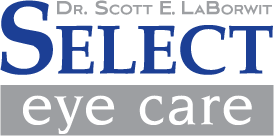Why Having Cataract Surgery Means the End of Cloudy Vision
March 27, 2024
Are you living with cloudy or blurry vision? One of the leading causes of blurry vision is cataracts.
The older you get, the more likely you are to develop cataracts, especially if you're in your forties or fifties. That's why it's vital to know the basics of this condition even if you don't currently have cataracts.
You may notice how detrimental they can be to your daily routine if you have cataracts. Cataracts make simple tasks like driving and reading challenging, even if you're wearing glasses or contacts.
Fortunately, there is a safe and effective way to treat cataracts and restore your vision and ability to see clearly. Keep reading to learn why having cataract surgery means the end of cloudy vision!
What You Need to Know About Cataracts

When you look in the mirror, your eyes should look clear, not cloudy. But when you have cataracts, you may notice that your eye looks cloudy.
When your natural lens is cloudy, this is known as a cataract. Cataracts cloud the lens of your eye, causing your vision to be blurry.
If you have cataracts, it's like looking through a foggy window. As the cataract worsens, it can also change the outer appearance of your eye, giving it a whitish, cloudy look.
While cataracts have adverse side effects, they are a standard part of the aging process. Around 20 million adults over the age of 40 have cataracts.
The good news is that there is an effective way to remove cataracts and regain your clear vision. Cataract surgery can improve your life and end cloudy eyesight.
What are the Symptoms of Cataracts?
Living with cataracts can be quite challenging. While cataract symptoms are minimal at first, the condition usually progresses.
Many patients with cataracts may not realize they have them at first. However, cataracts can reach a point where glasses and contacts aren't enough to restore clear vision.
Cataracts can develop slowly initially, so you may not notice any adverse outcomes or changes to your vision. However, the longer you go without addressing your cataracts, the more pronounced the symptoms become.
Once you reach the age of 40, it's even more critical to have eye exams regularly. Eye exams help your eye doctor screen for cataracts and other age-related eye conditions. You should also be on the lookout for the following symptoms:
- Cloudy or blurry vision
- Difficulties seeing at night or in dim light
- Increased sensitivity to light
- The appearance of halos around lights
- Frequent adjustment in your contact or glasses prescription
- Colors that look faded or yellow
- Double vision in one of your eyes
These symptoms can impact your quality of life, so setting up a cataract evaluation at Select Eye Care is the first step in finding the right treatment plan.
Ready for Cataract Surgery?
Find out if you’re a candidate.
Take the Cataract Surgery Self Test
What is Cataract Surgery?
Cataract surgery is the only way to treat cataracts. You can manage the symptoms of cataracts with glasses or contact lenses, at least temporarily.
However, if your cataracts get more severe, these visual aids may no longer be effective enough. Cataract surgery is the only option for removing cataracts and restoring clear vision.
The benefit is that cataract surgery is very effective and has a high success rate. It is an outpatient procedure, meaning you'll go home once it's over. It only takes about an hour to perform.
How Does Cataract Surgery Work?
Cataract surgery removes your natural lens and replaces it with an artificial lens called an intraocular lens (IOL). The intraocular lens is clear and replaces the clouded natural lens.
Cataract surgery is performed as follows:
- First, you'll receive numbing eye drops to ensure you won't feel any pain during the procedure
- Next, your cataract surgeon will create a small incision to remove your natural lens
- They will remove your natural lens and place your IOL in the empty lens capsule
Most patients notice improved vision within a few days, although you may have blurry vision at first as your eyes adjust to the new IOL. You may still need glasses and contacts after cataract surgery, depending on your chosen IOL.
Your cataract surgeon will review what to expect during recovery and how long before you can return to your usual routine after the procedure.
Learn More About Cataract Surgery
Schedule a Cataract Surgery Evaluation!
What are the Benefits of Cataract Surgery?

Cataract surgery has many advantages. It is a procedure that treats cataracts, ensuring you can see clearly.
You'll no longer have to worry about glare or halos getting in your way. Instead, you'll be able to see clearly for years to come.
With cataract surgery, you can do everything you want, including hobbies like reading or work projects like operating machinery. You'll no longer have blurry, cloudy vision!
Another advantage of cataract surgery is that your new intraocular lens can't develop cataracts. However, in rare cases, patients may develop a secondary cataract in the back of their lens capsule after the procedure.
The lens capsule is not removed during cataract surgery. A secondary cataract is not a cataract but has very similar symptoms.
However, patients who develop this condition don't have to worry. This side effect is easy to fix with a painless treatment known as a YAG laser capsulotomy.
Set Up Your Cataract Evaluation!
Because cataracts decrease quality of life and make most tasks more difficult, cataract surgery is an excellent option for many patients. With cataract surgery, you'll have clearer vision and the freedom to drive and do anything else you want to do.
If you have cataracts, cataract surgery is the only way to treat them. Schedule your cataract evaluation at Select Eye Care in Elkridge and Towson, MD, now! Why should cataracts continue clouding your vision and preventing you from living your best life.



